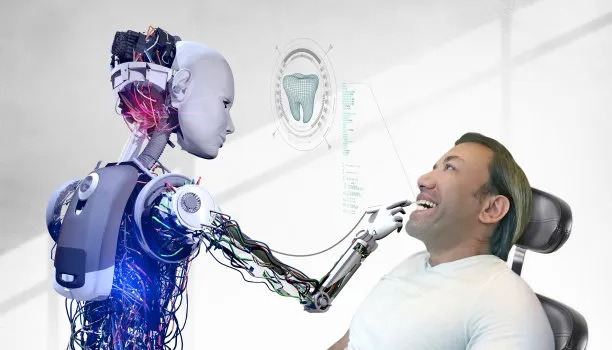Summary: This article delves into the innovative solutions in dental implant treatment, emphasizing their role in enhancing oral health and improving quality of life. We explore four critical aspects: cutting-edge technologies, personalized treatment plans, advanced materials, and holistic approaches to care. Each of these facets contributes significantly to the evolution of dental implantology, making it not only more efficient but also more patient-friendly. By integrating these innovative solutions, dental professionals can improve outcomes, minimize discomfort, and optimize the overall experience for patients, ultimately leading to better long-term oral health and a higher quality of life.
1. Cutting-Edge Technologies in Dentistry

The evolution of dental implant treatment has been profoundly impacted by the integration of cutting-edge technologies. Innovations such as 3D imaging and computer-aided design (CAD) have revolutionized the planning process for dental implants. These technologies enable practitioners to create precise representations of a patients oral anatomy, allowing for highly accurate implant placements.
Moreover, 3D printing technology is now at the forefront of dental solutions. It allows for the production of customized surgical guides that enhance the accuracy of implant placement. This is essential not only for the success of the implant but also for preserving the surrounding bone structure, which contributes to long-term oral health.
Another significant advancement is the use of digital workflows in implant dentistry. This streamlined process enhances collaboration among dental specialists, ensuring that every step—from diagnostics to treatment—is meticulously coordinated. As a result, patients benefit from a smoother and more predictable treatment experience.
2. Personalized Treatment Plans
Personalization is becoming a cornerstone of effective dental implant treatment. Each patients unique oral health needs and expectations are critical in formulating a treatment plan tailored specifically for them. By conducting comprehensive assessments, dental professionals can identify the most appropriate type of implant and treatment strategy, ensuring optimal results.
The role of patient input cannot be overstated in personalizing treatment. By engaging in discussions about their preferences and lifestyle, patients can contribute to decisions that affect their oral health outcomes. This collaboration enhances satisfaction and compliance with treatment protocols.
Furthermore, advancements in materials and techniques allow for personalized solutions that cater to unique cases of bone loss or other complicating factors. Techniques such as bone grafting and sinus lifts can be tailored to fit individual needs, making previously challenging cases manageable.
3. Advanced Materials for Implants
The materials used in dental implants have undergone significant evolution, improving their durability, biocompatibility, and aesthetic appeal. Titanium remains a popular choice due to its strength and compatibility with human tissue, but innovations have introduced alternative materials that offer even better integration and lower rejection rates.
Zirconia implants, for instance, are gaining popularity for their natural tooth-like appearance and reduced risk of gum irritation. Their white color resembles natural teeth, making them an ideal choice for patients concerned about aesthetics. Dental professionals increasingly recommend these implants for anterior regions where visibility is paramount.
Additionally, the introduction of surface modification techniques has refined implant integration into the jawbone. Enhanced surface textures can encourage faster osseointegration, the process by which the implant fuses with the bone, leading to quicker healing times and improved success rates for patients.
4. Holistic Approaches to Care
A growing trend in dental implant treatment is the incorporation of holistic approaches to care. This perspective emphasizes the importance of overall wellness and recognizes the interconnectedness of oral health with general health. By viewing patients as whole individuals, dental practitioners can address not just the surgical aspect but also factors that influence healing.
Patients are increasingly encouraged to maintain healthy lifestyles, which can significantly impact their recovery after dental implant surgery. Nutrition, stress management, and regular physical activity contribute to improved healing and can enhance the longevity of dental implants.
Moreover, mental and emotional support is vital, as many patients experience anxiety related to dental procedures. Clinics offering psychological support and post-operative care can improve patient satisfaction and outcomes. Enhancing the overall experience leads to a greater commitment to future dental health, ensuring that patients maintain their new smiles.
Summary:
The discussion on innovative solutions in dental implant treatment highlights the importance of technological advancements, personalized approaches, advanced materials, and holistic care in enhancing oral health. These innovations not only improve the efficacy of treatments but also positively influence the overall quality of life for patients. As the field continues to evolve, the focus remains on delivering superior outcomes and patient satisfaction.
This article is compiled by Vickong Dental and the content is for reference only.
Vickong Dental
Vickong Dental is a large medical group established in Hong Kong in 2008 by professors from well-known medical universities in Guangdong and Hong Kong, as well as medical doctors from key national '985' universities (including Master's supervisors and senior professors). The chain of branches brings together expert dentists with PhDs and Master's degrees from Hong Kong and Mainland China, committed to providing high-quality dental treatment.
"Vickong Dental Practices the University Motto of 'Healing and Serving Society,' with a Stable Operation for Sixteen Years. It Has Been honored with Hong Kong Enterprise Leaders's Choice,' and is a Global Trusted Implant Center for the Nobel Implant System. Recommended by Hong Kong Metro Broadcast and Guangdong Television, it Serves Customers from Over Thirty Countries and Regions, Gaining the Trust and Favor of Citizens from the Guangdong-Hong Kong-Macau Greater Bay Area and Surrounding Cities.

Thousands of customers' unanimous praise
The most recognized and highly recommended dental service by customers in the Guangdong-Hong Kong-Macau Greater Bay Area
We Ensure You Receive Detailed Care and Attention Here
Hong Kong standards, Shenzhen prices, Your Trusted English-speaking dentists

Vickong Dental Medical-Grade Instrument Disinfection Process
Vickong Dental Medical-Grade Instrument Disinfection Process

Vickong Dental Chain: A Warm and Comfortable Environment for Treatment






Appointment Hours

Q&A
Why choose Vickong Dental?
Vickong Dental practices the university motto 「Medicine to Benefit Society」, with each branch bringing together highly qualified dentists with doctoral and master’s degrees from Hong Kong and the Mainland, and has maintained seventeen years of steady operation。Recipient of 「2024 Hong Kong Enterprise Leaders Brand」, 「2025 Hong Kong Enterprise Leaders Brand」, a Nobel Biocare Global Trusted Implant Center, and a brand recommended by Metro Radio Hong Kong and Guangdong TV。
To date, we have served customers from more than thirty countries and regions,earning exceptionally high word-of-mouth recognition and trusted recommendations from residents across the Guangdong-Hong Kong-Macao Greater Bay Area and surrounding cities
We have eight major branches in Zhuhai、Shenzhen,and a consultation and service assurance center in Hong Kong,so you can book a free consultation at any time for any questions,which is very reassuring.
If I do not accept the quotation after the CT scan, will I be charged??
No! As long as the actual treatment has not started, you will not be charged any fees.
Will there be any additional charges during the treatment process?
No, there won’t be any additional charges. Before treatment begins, we will clearly explain the treatment plan and its corresponding fees. Only after the patient agrees and signs the consent form will we proceed with the dental service.
Can I pay in Hong Kong dollars?
Yes. Vickong Dental accepts payment in Hong Kong dollars. The amount will be converted based on the exchange rate of the day, and the applicable rate will be clearly communicated to you in advance.
Can I reschedule my appointment at any time?
Yes. Please contact us via **WeChat** or **WhatsApp** as early as possible, providing your original appointment time and details, along with your preferred new date and time slot for rescheduling.













